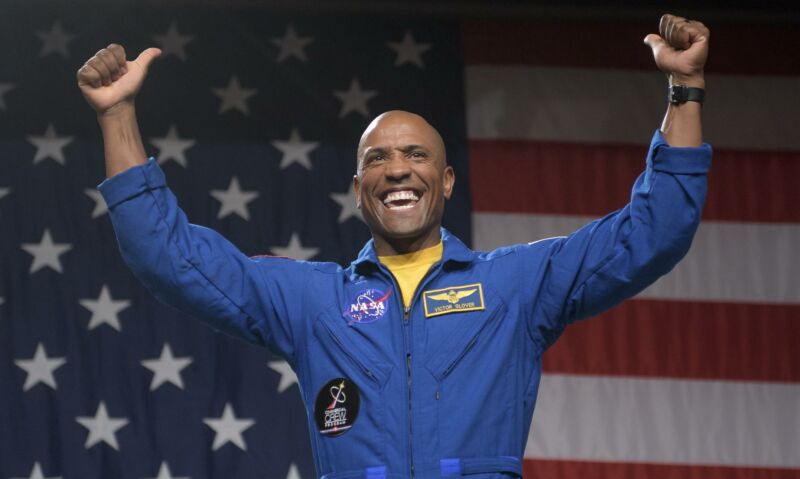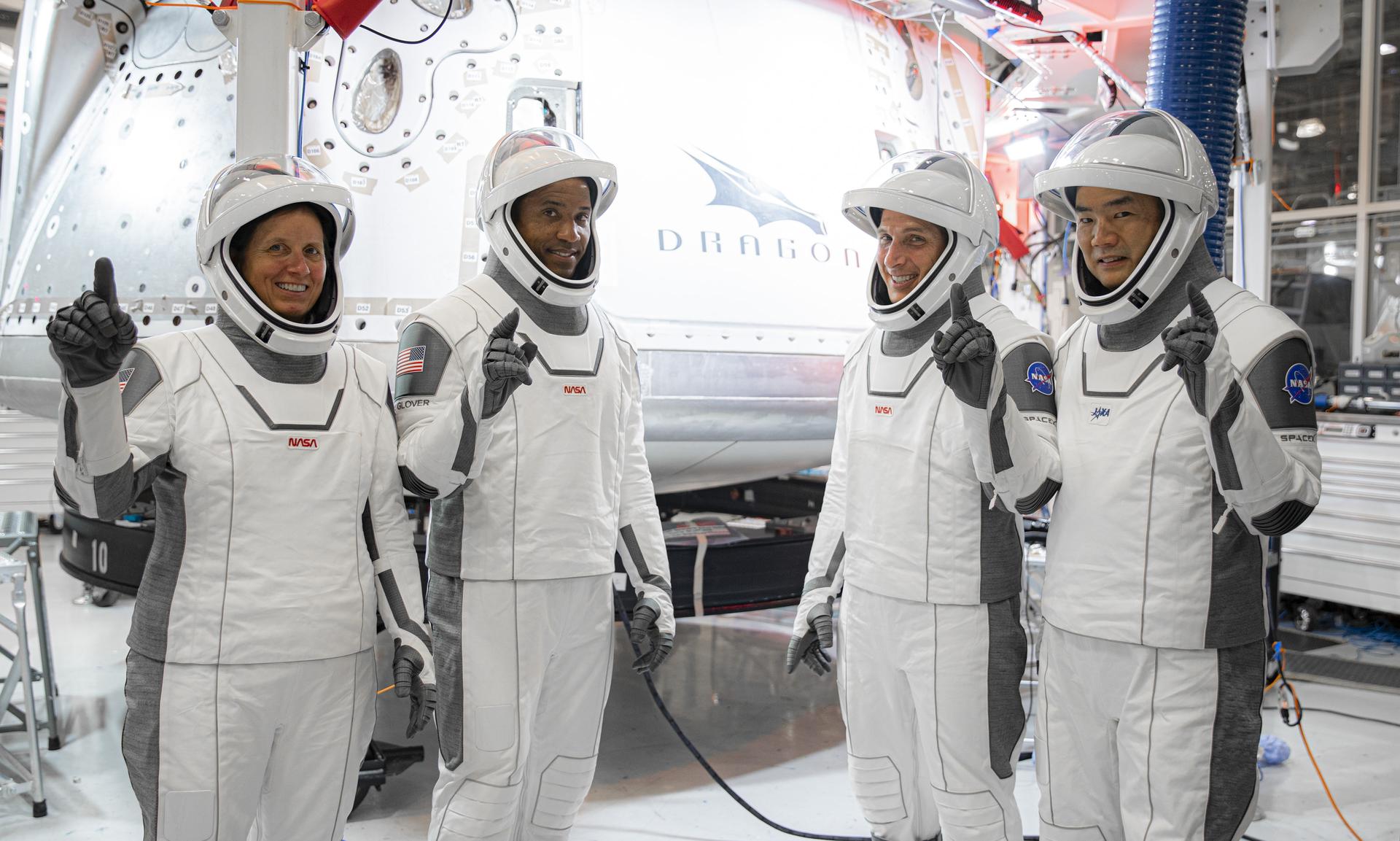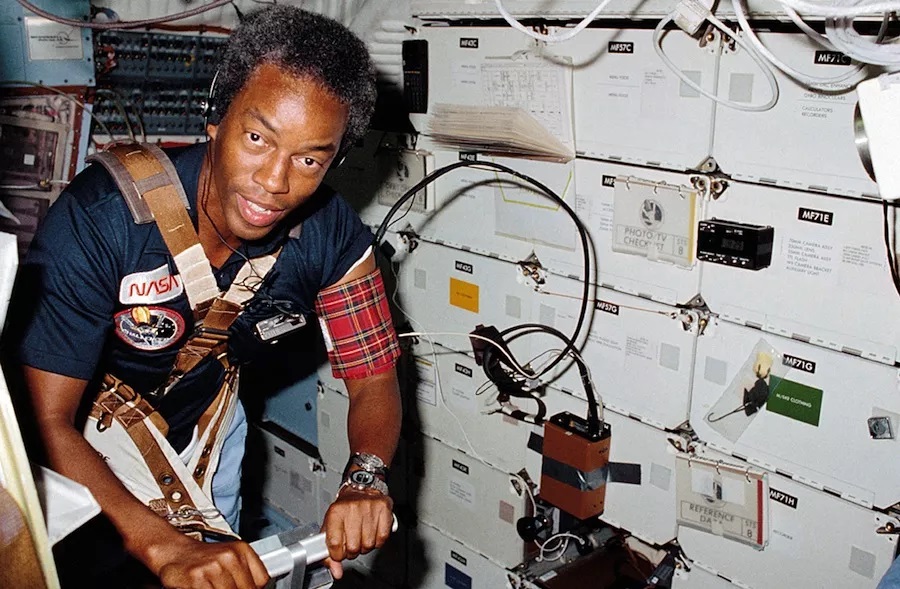In a nightmare year, Victor Glover is on the verge of living his dream
“My heart is low, my head is level, and my faith is high.”

Victor Glover says he does not want the attention. Not for this, at least. And I believe him.
“I wish that there wasn’t anything to talk about, but that’s not the world that we live in,” the NASA astronaut acknowledged during a recent interview.
The time we live in is the year 2020, an age that finds the United States riven yet again by racial tensions, sparked to life by the killing of George Floyd in May and exacerbated by an extraordinarily tense presidential election.
In the midst of all this, Glover is on the cusp of living his dream. Selected to become an astronaut in 2013, after training like hell for seven years, he’s landed a coveted spot on the first operational Crew Dragon mission to the International Space Station. As one of four astronauts on the Crew-1 mission, launching Saturday evening, Glover is helping to lead America back into space.
Also, Vic Glover is Black.
So with his flight, Glover is not only making history as the US gets back into the business of human spaceflight, he will become the first Black person to live on the space station. This seems like a shocking fact. The space station has now been inhabited for more than 20 years, after all, and 126 humans have lived there during that time. But none were Black. Six African-American astronauts visited the space station during shuttle missions, but none stayed aboard as long-term crew members.
When asked about this, Glover tends to deflect. The four members of the Crew-1 mission have adopted the “all for one” motto, he explains. “Our crew very intentionally decided to do certain things in certain ways, so that we can tell that message about teamwork, and commitment to excellence, in working together with differences,” he said.
It’s not that Glover has not thought about America’s racial problems.
But astronauts are strongly encouraged to share only positive messages with the public. Going against this suggestion can have negative consequences for flight opportunities. And yet in the wake of Floyd’s killing, Glover was clearly struggling with these issues.
“My heart is low, my head is level, and my faith is high. So much to process, if you’re struggling, that’s OK. I see you, I am you,” he wrote on Twitter in early June. One follower suggested, perhaps, that Glover should stick to space on his Twitter account. “Actually no,” Glover replied. “Remember who is doing space. People are. As we address extreme weather and pandemic disease, we will understand and overcome racism and bigotry so we can safely and together do space. Thanks for asking.”
Pressed a little more during the interview, Glover said one reason he has not spoken more about these issues publicly—beyond a few Twitter comments—is that he has not actually gone to space yet. He’d prefer to talk about things that he’s achieved rather than things he has yet to achieve.
Let’s talk in 6 months
“I would love to have another conversation with you six months from now, because I try to stay away from the bittersweet discussion of being the first Black astronaut assigned to a long-duration mission on the space station,” he said. “I want to go do it first, I want to go do my job, and so I think the best thing that I can do, better than anything I could say, is to go do my job and do it well, and then come back and tell people about it. And I think this job, by its very nature, is inspirational and hopefully gives people something to unify around and celebrate together. And if we can do that, when we get back we have a lot of amazing things to talk about.”

It’s not about the “Black Astronaut”
So the Crew-1 mission is not about Glover. But if it’s a success, and Glover’s story of going from the inner city to Test Pilot School to space helps raise up America, he’s good with that.
Glover will also become the first Black astronaut to go into space in nearly a decade. Alvin Drew is the last Black flier—having served as a mission specialist on STS-133 in 2011. He does not believe racism contributed to the nearly decade-long gulf drought. Rather, Drew said, it mostly reflects the fact that the Black astronauts who remained in the corps after the space shuttle program ended were junior and, due to limited seats on Soyuz vehicles, had to wait a long time.
All the same, he eagerly anticipates Glover’s flight to the space station. It’s important for Black boys and girls to see people like them flying into space, living there, and contributing to exploration of the cosmos. “You want them to see there is still that opportunity,” Drew said. “That’s what I’m looking forward to.”
The next gap will not be so long. NASA has already announced that another Black astronaut, Jeannette Epps, will fly to the International Space Station aboard the first operational mission of Boeing’s Starliner spacecraft. That flight could occur in 2021 but will more likely slip into 2022 due to ongoing software problems with the Boeing capsule.

